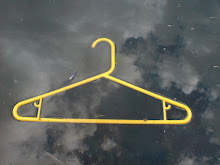23/04/2009
Sport et Vie: Une femme est une femme
"This is a masterpiece." She wants to be both animals in the book. She wants to be two. She wants to have a baby. She reads the aesthetics of Hegel. There are three levels of representation fused in the film: the first is the film in full musical flow, which is also the life of the film, the action, walking down the street, dancing the cabaret, the egg cooking (and breaking) - performing the scenes. Then there is the uncertainty of the plot, the doubts in the moments of silence, when she wants to know her time of maximum fertility with scientific precision. And lastly, there is the wink to the camera, the self-consciousness directed at the viewer. This is a sort of carnival of form resulting from one of the best attempts to represent the problems of representation. To reiterate these 3 principal levels of the film - first there is the film's cinematic form, music, action, acting, cabaret, reference to hollywood and other predecessors, comedy, tragedy. The event that is blessed. Blessed with meaning invested by the viewer. The viewer's blessing. Then there is the film's plot, the 'meaning', the problems of making a film with a plot, the attempt to define the frame that sustains the action, without music, with serious conversations, and indecision, indifference, and uncertainty. One of the lovers lights his cigarette with two matches, drawing them back and forth across the cigarette tip. The blessed event. The event that comes about from desire, and, as an event, blesses that desire. Then finally there are the flashes of playful self-consciousness, where the actors look, smile, or wink at the camera. It can be seen as a kind of continuum: cinematic intent>meaning and plot>action and form>cinematic intent>meaning and plot>events and form, and so on. All three aspects are interdependent and sustain themselves by their interdependence and a continuous reference from one level to another and back again. At the level of plot, the female protagonist wants to have a baby. We can say that what she actually wants is to make herself real by creative reproduction. This is the central theme of the film. When looking at the picture book of animals, she states that she wants to be both animals, she wants to be two things, her own suggestion and answer, making herself real by a re-presentation. Singularity is meaningless. The film is concerned with the relationship of the 'real' and 're-presentation'. Nothing can be said to be real until it is re-presented, until its meaning is made transcendent by being repeated. To 'say' something, is to represent it. But of course the representation is not the real thing, but the real thing is nothing without the representation. Angela thinks she will feel more 'real' if she is two things, if she is mother and baby. It is also the relationship of reality and desire - they define one another - reality is not comprehensible without the desire for it to be something else - she is nothing without her desire to be other than what she is. And in the middle of all this, between the desire to know with scientific precision, at the level of plot, when her days of maximum fertility will be, and, at the level of action, her chasing her two lovers in an attempt for one of them to give her a baby, there is the wink to the camera, the recognition of the real and the represented as a kind of game, where the flitting between the two, the ability to represent the real, is what constitutes whatever reality there is. The film borrows famous scenes and cliched scenarios, picks and chooses it's identity from other identities before it has one itself, playfully, inconsequentially, but in a way that seems to give it substance. How is it possible that empty repetitions give the film a unique substance? Because as representations we invest them with our desire for them to be real. Godard gives us representations that are realized through intent alone, with no explicit, clear, underlying reality (which, the point being, it is suggested, there cannot be). The film represents the notion that reality is essentially a desire for the 'real', and that this desire is what gives it, and us, flesh. Therefore, in a way, reality takes the form of our desires. Godard has his character say "this is a masterpiece" to the camera. It is, because it is a film that winks at the camera and says 'this is a film', and is one.
Labels:
desire,
Godard,
intent,
representation,
singularity,
the other
Subscribe to:
Post Comments (Atom)

No comments:
Post a Comment